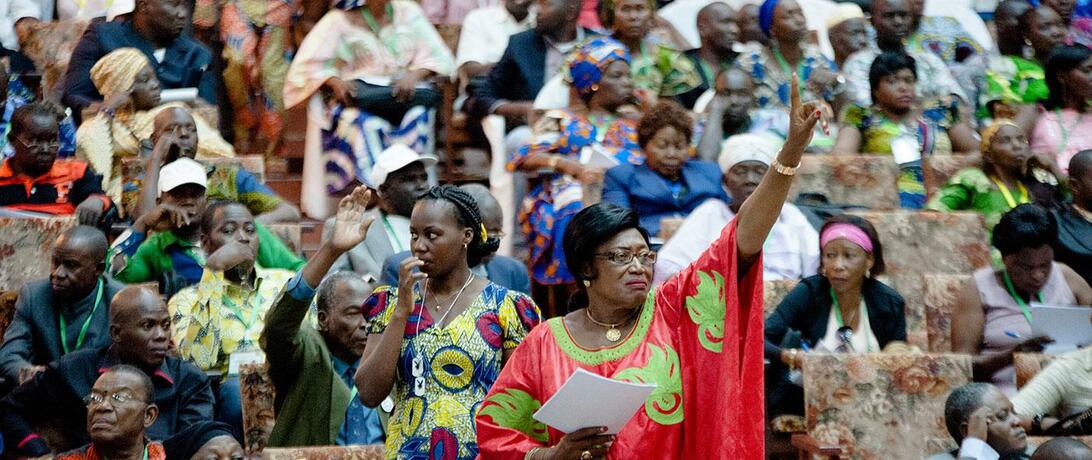
When women participate in strategic planning around women, peace and security issues there is a greater likelihood of successful outcomes, including greater awareness of women’s distinct priorities for peace at the national level and more effective dialogue among policymakers, civil society, and the security sector.
The new report, From Global Promise to National Action, investigates progress made on National Action Plans to implement United Nations Security Council resolution 1325 on women, peace, and security in four post-conflict countries: the Democratic Republic of Congo, the Philippines, Serbia, and Sierra Leone.
The authors find governments and civil societies developed national action plans through a broadly inclusive process in each case, increasing collaboration around key peace and security priorities in post-conflict settings that are often plagued by a lack of trust and communication.
“This collaborative approach created new avenues for women to inform policymaking and articulate peace and security priorities that may otherwise be overlooked,” said Marie O’Reilly, director of research at Inclusive Security and co-author of the report.
However, challenges remain in implementing national action plans. “Persistent gender discrimination and lack of funding frequently prevented states from achieving their plans’ objectives,” said Alexandra Amling, researcher at One Earth Future and co-author of the report. “When new peace and security challenges emerged, such as Ebola in Sierra Leone or election-related violence in the Democratic Republic of Congo, the plans were not flexible enough to adapt.”
In addition, those implementing these plans frequently failed to get beyond the national level to address provincial and municipal priorities or draw on local-level change-makers. In fact, in the implementation phase, all of the countries struggled with the key components associated with high-impact NAPs—political will, coordination, financial support, and monitoring and evaluation of the results.
The full report is available for download.
For more information, please contact One Earth Future at +1 303-533-1715 or [email protected].
About Inclusive Security:
Inclusive Security transforming decision-making about war and peace. We are convinced that a more secure world is possible if policymakers and conflict-affected populations work together. Women’s meaningful participation, in particular, can make the difference between failure and success. Since 1999, Inclusive Security has equipped decision-makers with knowledge, tools, and connections that strengthen their ability to develop inclusive policies and approaches. We have also bolstered the skills and influence of women leaders around the world. Together with these allies, we are making inclusion the rule, not the exception.
About One Earth Future:
OEF is a self-funded, private operating foundation seeking to create a more peaceful world through collaborative, data-driven initiatives. We focus on enhancing maritime cooperation, creating sustainable jobs in fragile economies and our research actively contributes to thought leadership on global issues. As an operating foundation, One Earth Future provides strategic, financial and administrative support allowing our programs to focus deeply on complex problems and to create constructive alternatives to violent conflict. OEF recently launched Our Secure Future, a program whose mission is to strengthen the Women, Peace and Security movement to enable effective policy decision-making for a more just and peaceful world.
###
Article Details
Published
Program
Content Type
News